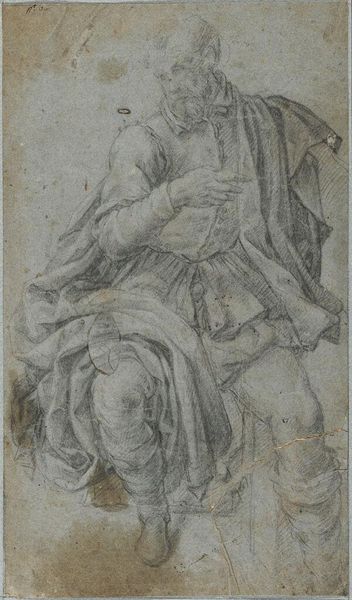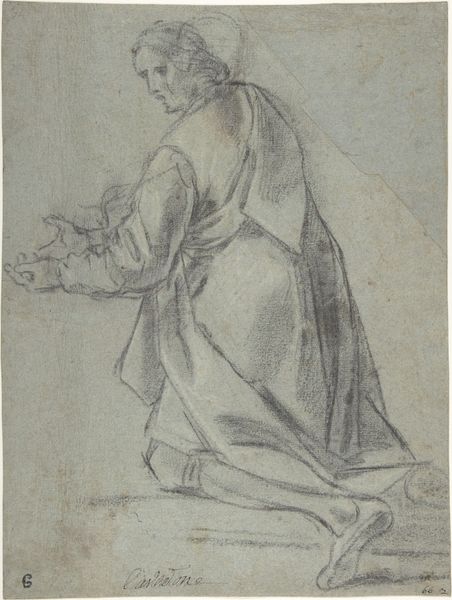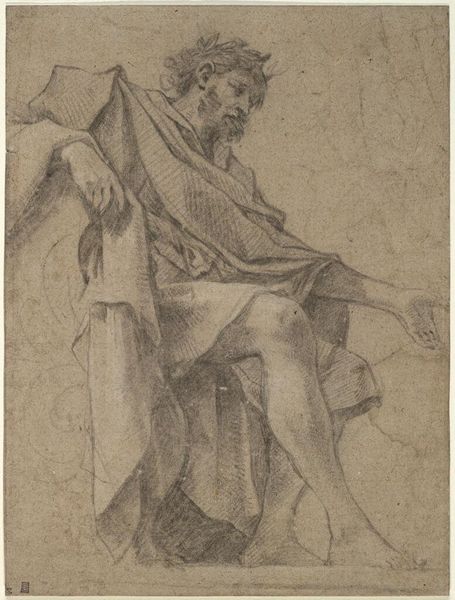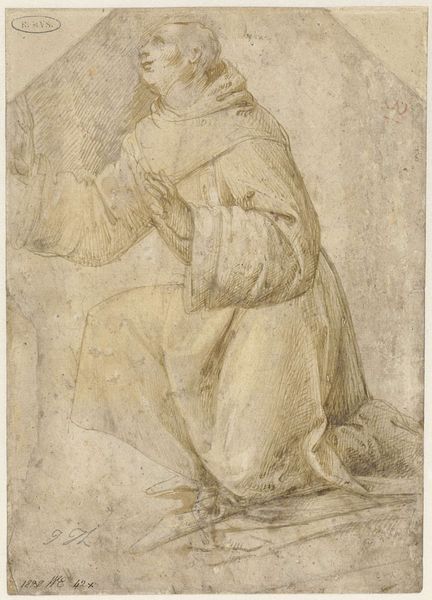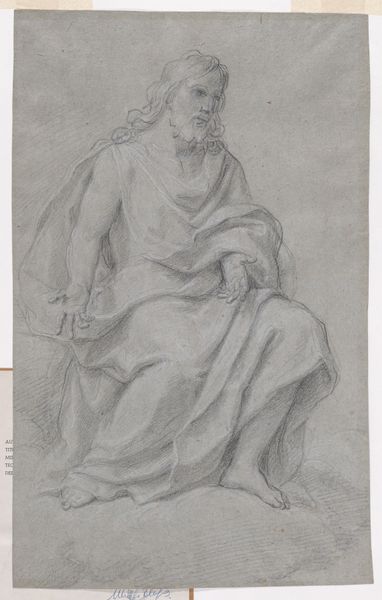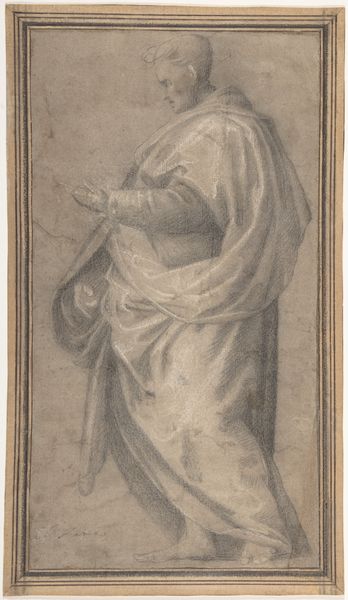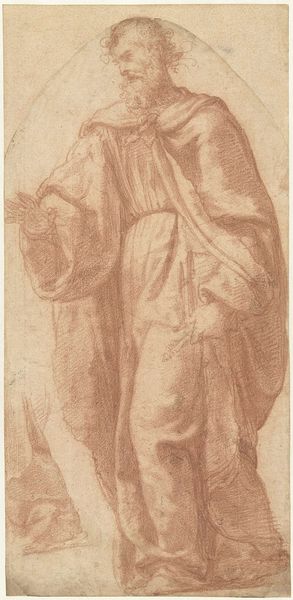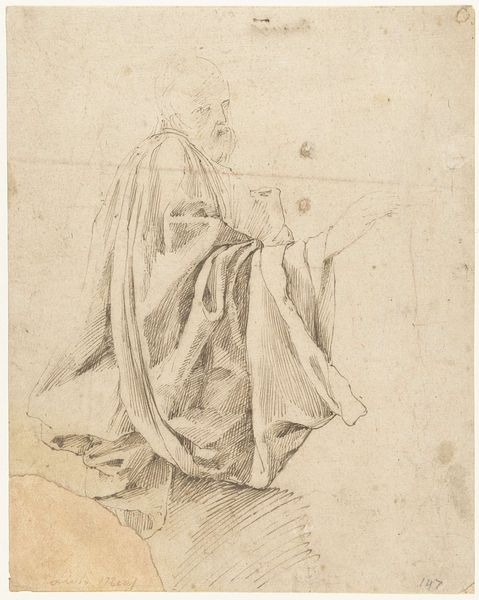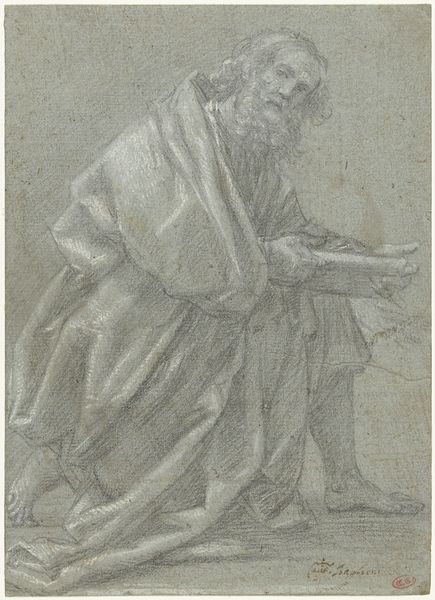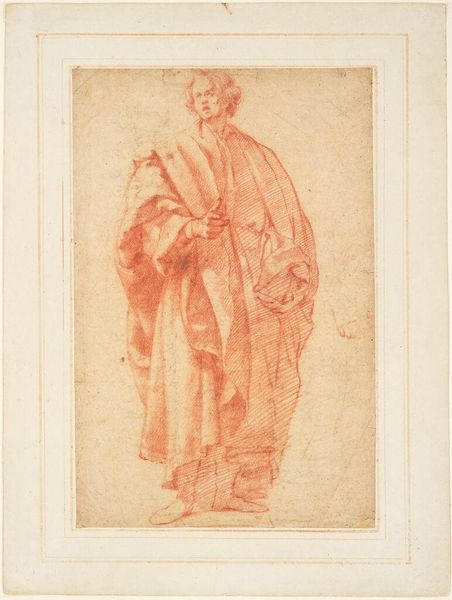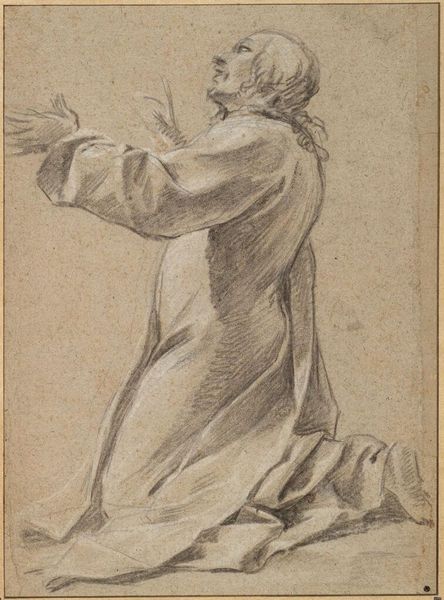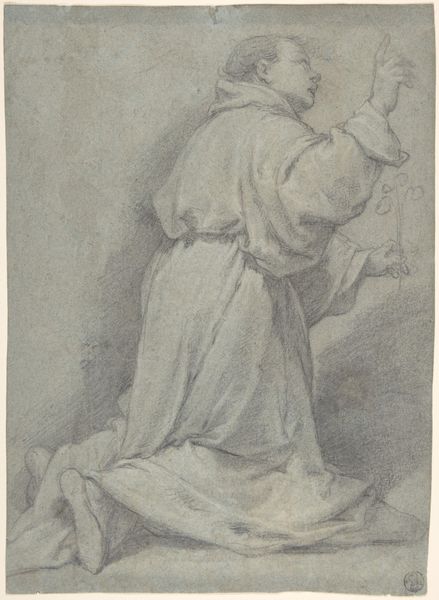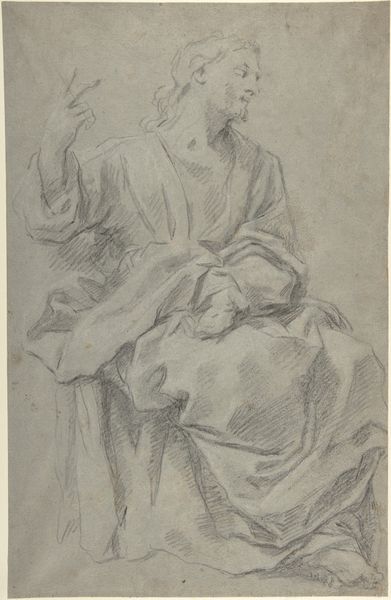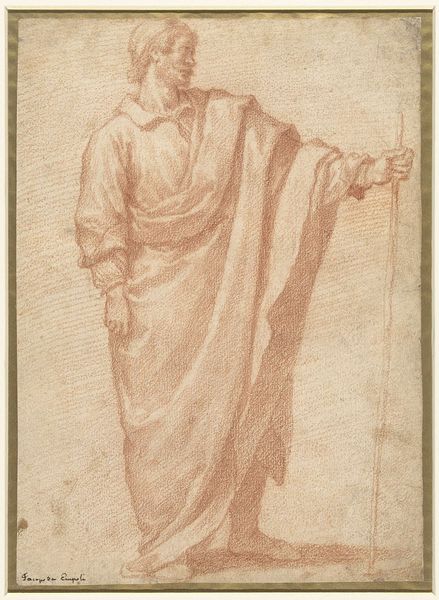
drawing, pencil, charcoal
#
portrait
#
drawing
#
baroque
#
charcoal drawing
#
figuration
#
pencil drawing
#
pencil
#
charcoal
Dimensions: height 260 mm, width 196 mm
Copyright: Rijks Museum: Open Domain
Guillaume Courtois created this drawing of St. Hilary, beholding the Trinity, with chalk and charcoal in seventeenth-century Italy. St. Hilary of Poitiers was a fourth-century bishop and Doctor of the Church, celebrated for his defense of orthodox Christian doctrine, particularly the Holy Trinity. The work reflects the intense religious atmosphere of Counter-Reformation Rome, a time when the Catholic Church sought to reaffirm its theological foundations. The city's artistic institutions, like the Accademia di San Luca, played a key role in promoting these ideas. Courtois, as a member, would have been familiar with the conventions of religious art. To understand this drawing fully, we might consult theological treatises, biographies of St. Hilary, and records of artistic patronage in Rome. We can gain a deeper understanding of the social forces that shaped its creation. The meaning of art always remains deeply contingent on its specific historical and institutional context.
Comments
No comments
Be the first to comment and join the conversation on the ultimate creative platform.
